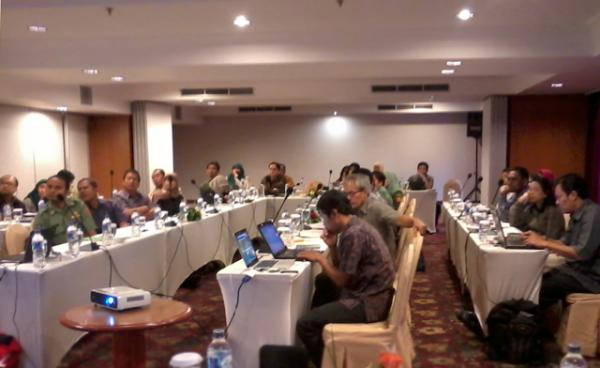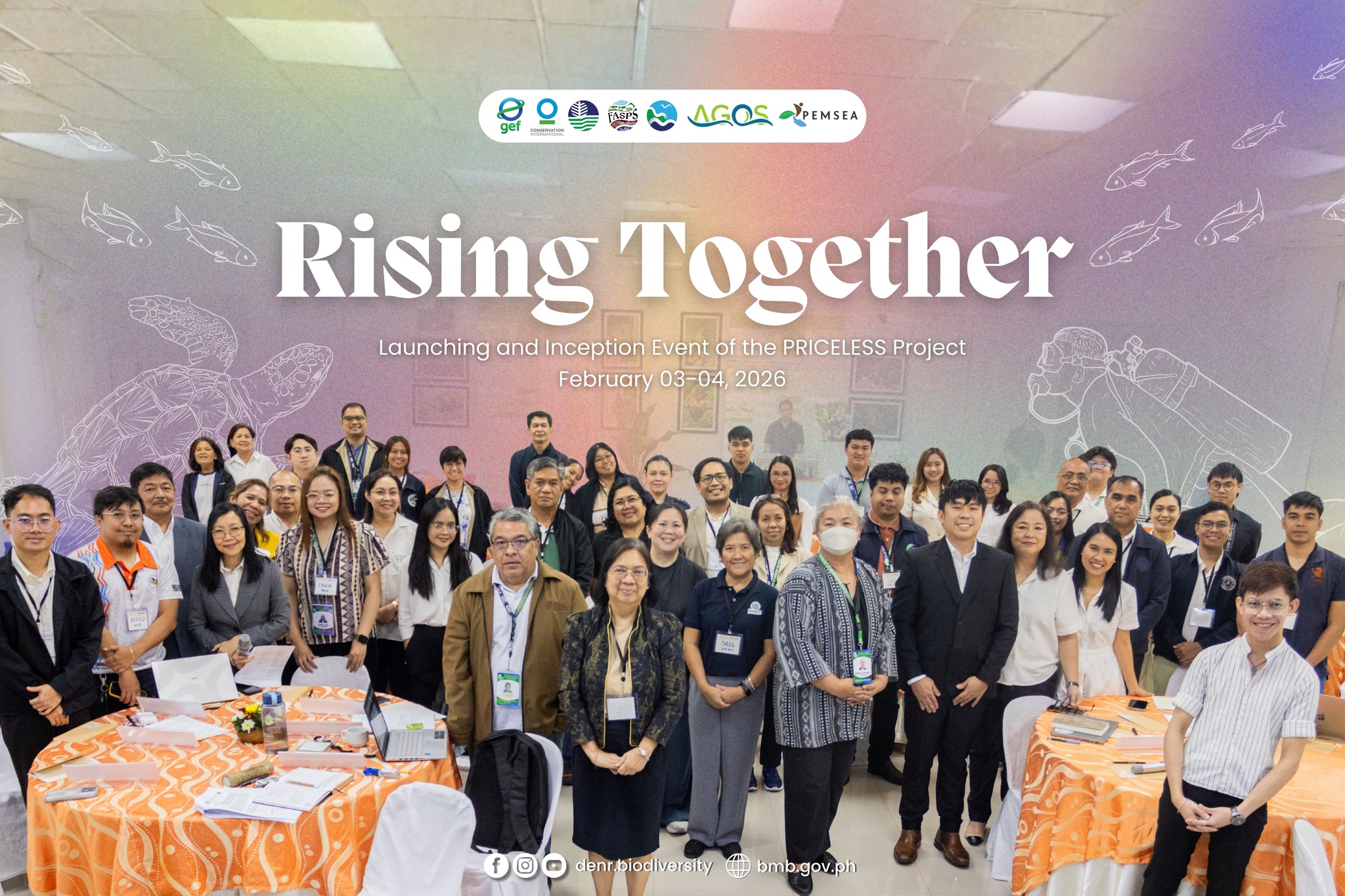Scaling Up ICM and SDS-SEA in Indonesia
Wednesday, 28 August 2013

Jakarta, Indonesia — This year, Indonesia has made big steps toward implementing Integrated Coastal Management (ICM) under the framework of the Sustainable Development Strategy for the Seas of East Asia (SDS-SEA) that will help strike a good balance between environmental preservation and economic potential for the archipelagic nation's seas and coasts.
Indonesia's Ministry of Environment (MOE), with technical support from PEMSEA and the Center for Coastal and Marine Resources Studies of Bogor Agricultural University (PKSPL-IPB), successfully organized SDS-SEA workshops that engaged national agencies, local governments and other organizations involved in environmental, marine and coastal management. The workshops were able to take stock of existing ICM initiatives in the country and develop a framework of actions toward the development and implementation of a national ICM program.
On 13 March, a consultation workshop discussed the draft Five-Year SDS-SEA Implementation Plan for Indonesia, and highlighted its linkages with national and local development plans and targets, as well as with regional commitments and SDS-SEA targets. Dr. Luky Adrianto of PKSPL-IPB emphasized the need for a multisectoral coordination mechanism for the Implementation Plan and its importance as a platform for formulating and managing investments for marine and coastal management in terms of social, financial and human and technical resources.
Based on the Five-Year SDS-SEA Implementation Plan, the workshop discussed priority actions and potential locations for inclusion in the GEF/UNDP/PEMSEA Project on Scaling Up the Implementation of the SDS-SEA (2014–2019). Mr. Adrian Ross, Acting Executive Director and Chief Technical Officer of PEMSEA, discussed the development of the project framework for Indonesia.
Mr. Nursiwan Taqim, Assistant Deputy for Marine and Coastal Degradation Control of the MOE, shared the following priority programs and areas for consideration in the above project:
The Rantai Emas Program, a coastal habitat rehabilitation project promoting livelihood improvement, with an emphasis on ICM by addressing relevant management aspects. The program involves strategies in mangrove rehabilitation, preservation, utilization and carbon calculation in 13 mangrove sites and 5 coral rehabilitation areas in East and Central Java. It also promotes community responsibility and benefits and corporate social responsibility.
State of the Coasts (SOC) reporting in 32 provinces using PEMSEA's SOC Guidebook translated in Bahasa. The MOE has also developed a website to serve as an online integrated information management system to enable local governments to update information for their respective SOCs online.
Priority ICM implementation sites in Bali Strait, Tomini Bay, Jakarta Bay and East Coast of Sumatra. The MOE provides policy and coordination support in preparing strategic plans and action programs for these sites, with a cross-cutting focus on local community empowerment.
Other participating agencies and local governments also shared their respective programs for consideration in the development of the SDS-SEA Scaling Up project.
On 3 June, a follow-up collaborative planning and consultation workshop was organized by MOE to further discuss the details of the SDS-SEA Scaling Up project and to develop a strategic framework of actions, outputs and expected outcomes for Indonesia. Participants from national agencies, provinces of Jakarta, Bali, Central Sulawesi, and Sukabumi Regency were able to identify priority locations for ICM scaling-up along with proposed focus areas for each location, and identify capacity and technical needs to address constraints, gaps and barriers in implementing the project.
The workshop also agreed on highly crucial targets and actions for Indonesia, including an ocean policy aligned with national policies and legislation; adoption of the Five-Year SDS-SEA Implementation Plan; SOC reports for local sites and a consolidated national SOC report; ICM scaling-up in existing ICM sites focusing on coastal tourism development in Sukabumi, pollution reduction in Jakarta Bay, water resources management and pollution reduction in Bali, and sustainable fisheries management in Tomini Bay; and establishment of other ICM learning sites addressing various issues, such as habitat protection and rehabilitation, ecosystem approach to fisheries, alternative and supplemental livelihood development, and climate change and disaster risk reduction.




